Catching up with poultry trends can be very stressful and exhausting, like you just have to be everywhere, your brain must be calculating. I’m saying this not because I want to lure you with my words but trying to open yours eyes to hidden secrets some experienced poultry farmer will not reveal to you cheap. Managing poultry farms in Nigeria’s tropical climate comes with a lot considerations, practices with continuous action and observation. Before I will dive deeper into this article let me bring to your notice that we have two (2) major tropical climate in Nigeria, which are; Dry season with heat and raining season with cold. Do endeavor to keep reading I will explain in details how you can keep your birds to survive the heat during the dry season as well as the cold during the raining seasons were most less experienced poultry farmers do lost their birds.
Dry season with heat
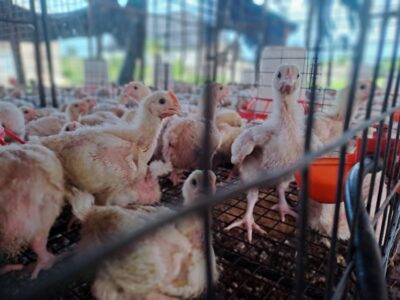
The heat is on managing poultry farms in Nigeria’s tropical climate
This season usually come around late November to early May of every year. Though this dry season with heat also have another climate called Harmattan but that’s not what I’m heading now I will talk about it later. Dry season comes with a lot of challenges and with a lot of benefits. If you’re a brooders you can relate to what I’m saying, rearing day old chicks (DOC) is very less expensive in this season which you don’t have to spend much to provide heats for the chicks (there’s already natural heat) and it is recorded that chickens don’t usually fall sick especially when you put the heat measure in place. As for a starter in this line of business, when you want to brood in this season your first goal is to make sure you enclosed the chicks environment or their brooding room and automatically heat will naturally generates, though in the morning it is recommended that you need to provide heat for the birds because is usually cold that should be around 4am to 7:30am, (you can generate heats through the means of charcoal). Through this process the birds will warm and then you can withdraw the charcoal from the brooding room in order to avoid high humid heat in the birds environment. You can continue this process for three 3 to four days if you’re brooding from DOC (day old chick). Another thing you put to effect especially when the birds are matured already, I am talking of birds between the of three 3 weeks and above though is also applicable to birds below this age range is;
Managing of water
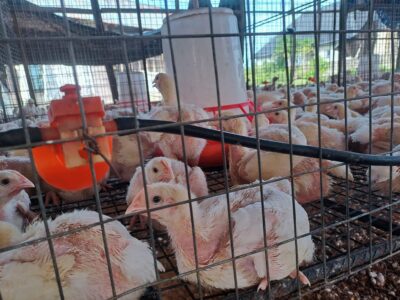
The heat is on managing poultry farms in Nigeria’s tropical climate
During the dry Season that comes with lots of heat, which mostly leads to heat stress, birds will increase their water intake by 2 to 4 times their normal intake. Sufficient water space, operating waterers and cool water temperatures will encourage the birds to drink.
And this can be achieved by consistently checking up on birds if they have finished off the water been provided to them not only that, you must make sure to check the water in their drinker if is not hot because too much heats can turn their water into hot. With this you can change their water and give them fresh and cool water. Another technique you can as well use in order to catch up with dry season with heat is;
Using of ice blocks
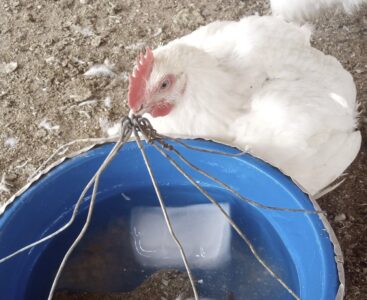
The heat is on managing poultry farms in Nigeria’s tropical climate
The most refreshing technique to cool off the heat stress from your birds is provision of ice block into their drinker. Just as you always use ice block in your Cassava flakes (garri) when you want to ease yourself from the stress of life. With this process the high temperature in the bird’s environment will cool off and their body temperature will be as well cool. NOTE: the ice block in this practice can be done by using the farm water specifically, don’t buy ice block of different water source to your farm, this can kill your birds. For more further information contact us we will put you through on how you can achieve it.
Harmattan, is a cool dry wind that blows from the northeast or east in the western Sahara and is strongest from late November to mid-March. It usually carries large amounts of dust, which it can transport hundreds of miles out over the Atlantic Ocean; the dust often interferes with local aircraft operations.
Raining season with cold
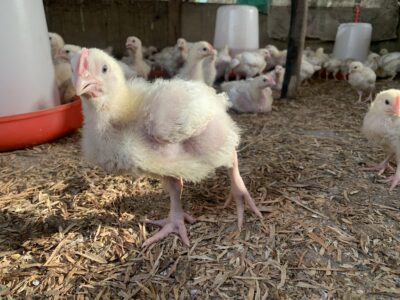
The heat is on managing poultry farms in Nigeria’s tropical climate
If you’re not a Pro in poultry farming, it is not advisable for you to farm during this season, raining season with cold (season) do comes up around late May to early November of every year. This season is for the legend meaning you have to be Pro! Pro! for you to have successful farming in this period. Though it comes with its own challenges with benefits. To burst your brain I do make lots of profit during this period because most farmers that’s didn’t have enough experience will quit during this period and their major excuses is that there’s always high rate of poultry diseases spread such as; Fowl cholera, fowl pox, coccidiosis, aspergillosis etc. Poultry diseases are rampant in the wet, rainy or cold seasons i.e. the onset of rain favors the propagation and spread of the causative organisms of these diseases and parasites. However, most poultry farmers experience high illness and mortality rate during this period.
To make it huge in this period you have to read and practice the system on running a profitable poultry business. The strategies to cope with this period is that;
Disallowing droppings of water
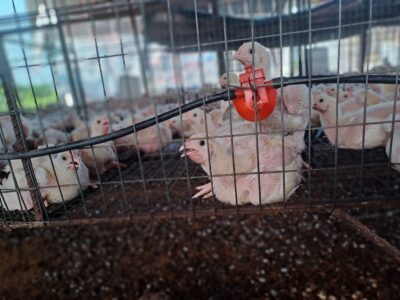
The heat is on managing poultry farms in Nigeria’s tropical climate
This strategy applies to farmers that rear their birds on free range, were using of sawdust is applicable. When rearing your birds on free range as a farmer you need to make sure you change the sawdust or wood savings regularly at least twice a week. Though it can be stressful but believe me it all worth it, because there’s no how birds will survive in this kind of farming system that water will not spill on the ground. Regular changing of sawdust or wood savings will disallow droppings of water from the birds. Constants practice of this strategy will disallow spreading of disease between the birds.
Fixing your poultry
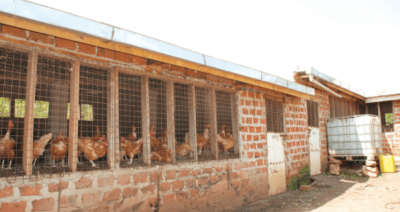
The heat is on managing poultry farms in Nigeria’s tropical climate
As we all known that disease spread among birds with the help of on set of rain. It is a must as a good farmer that want to be successful in this line of business to fix every damages in the farm, i.e fixing up the roof if licking, fixing up the tapollen been used to guides the birds from rain etc. with this process, the birds will grow properly without the hindrance of the falling rain.
Regular medication

The heat is on managing poultry farms in Nigeria’s tropical climate
Just as human, it is not when we fall ill that we need medication, we need to medicate ourselves even while been healthy in order to strengthen our antibodies that protect us from infections, allergens and toxins. Same thing applies to poultry birds, there’s a need to medicate them which comes with benefits. Regular application of strong antibiotics such like Amo-xy-col and amoxicillin at least once a month which can be applied for three to four days is recommended. And for people on low budgets, we all know bitter leaves with saint leave and aloe Vera, they are very strong antibiotic that can be given to our birds. Furthermore it is recommended for the pro to administer newcastle Disease Vaccine (LaSota Strain), the vaccine is recommended for administration to healthy chickens as an aid in the prevention of Newcastle disease.
Heating the birds up
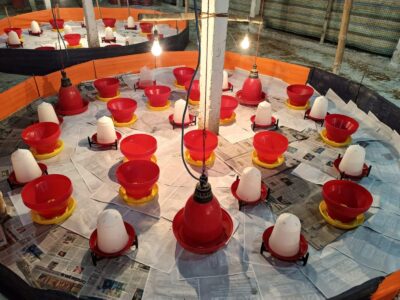
The heat is on managing poultry farms in Nigeria’s tropical climate
During the process of brooding, it is advisable for a farmer to stay with his or her birds in order to monitor the birds movement especially when they small. With this acts, the farmer will determine to heat the birds up or not and this can be decided when the birds cluster together (meaning the temperature of room is very low the birds need heat) and if they didn’t cluster it means the birds is healthy. This are the things farmer need to put into consideration in order to maximize his or her profits.
In conclusion, managing poultry farms in Nigeria’s tropical climate can be stressful and expensive, but it all worth it at the end. For poultry farmer to be successful in this line of business he or she must be a good observant of his or her birds. This creature are like human beings, they need maximum protection and care, the above strategies are the strategies i practically applied to my birds. You can as well use them which I can guarantee you that won’t regret applying them, for more tips like this leave a comment.
Thanks in anticipation.

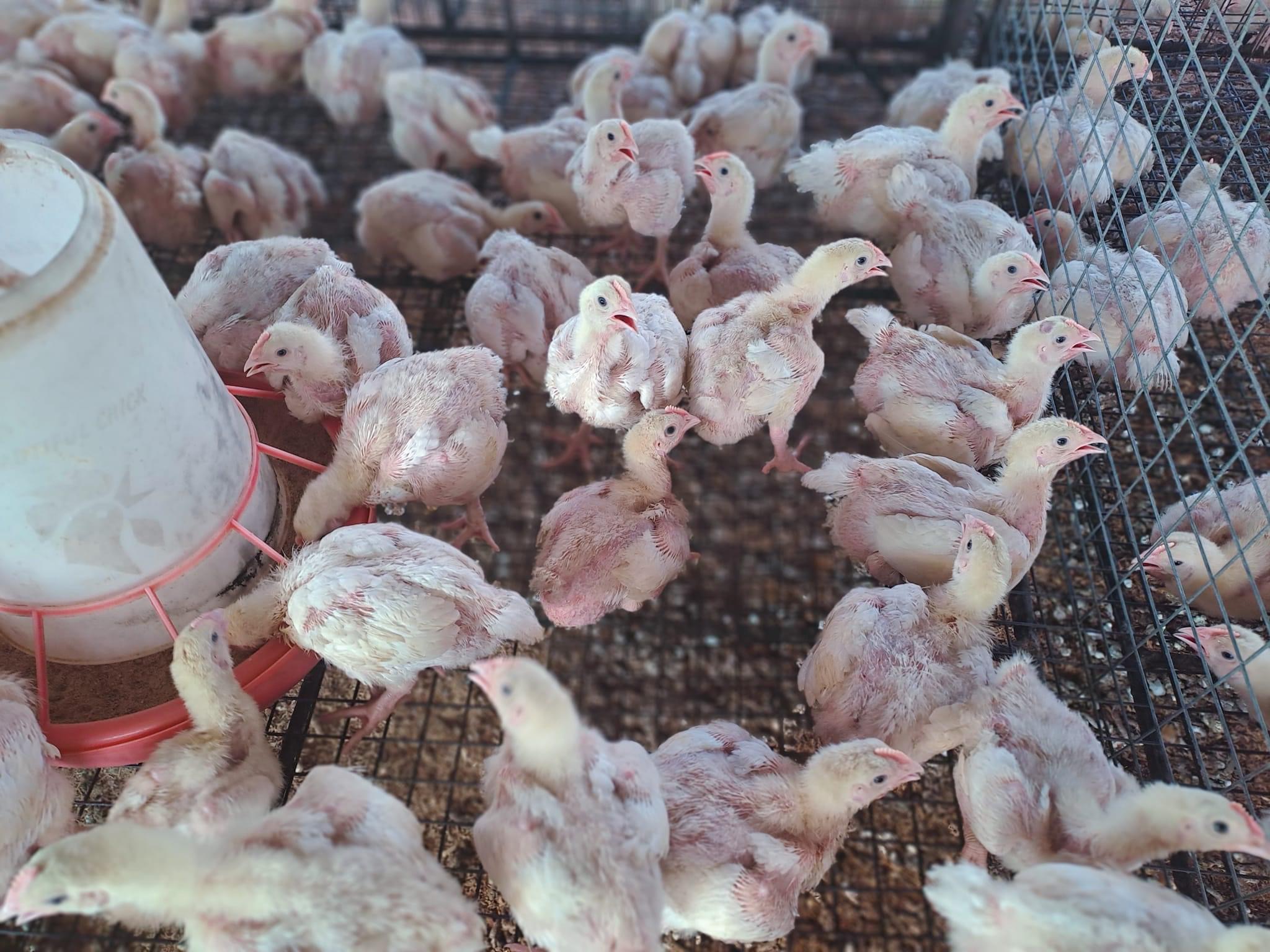
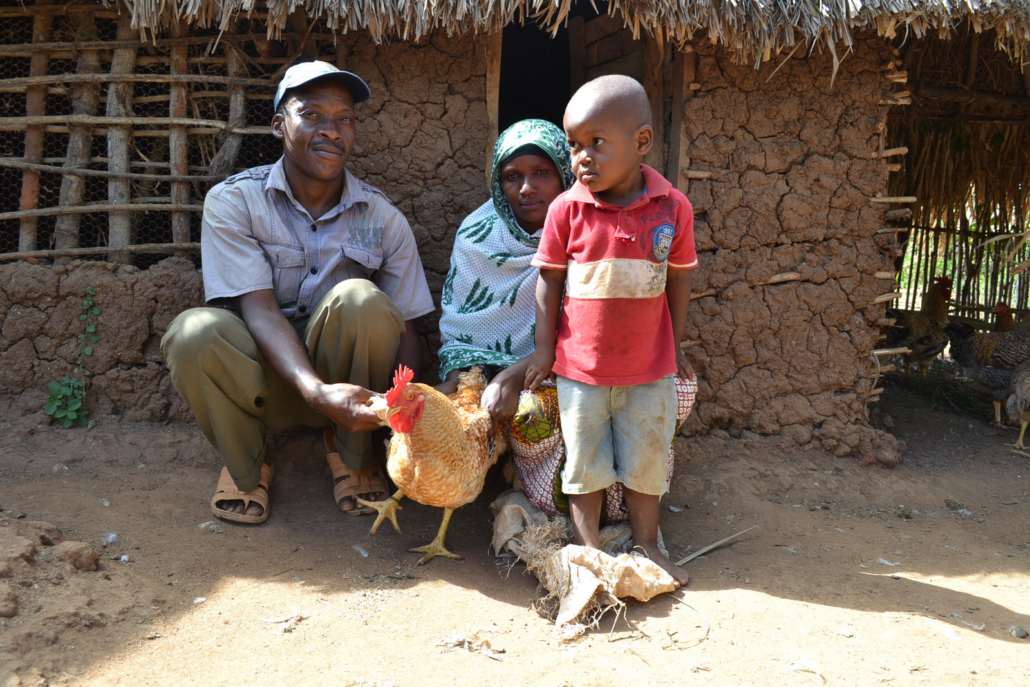
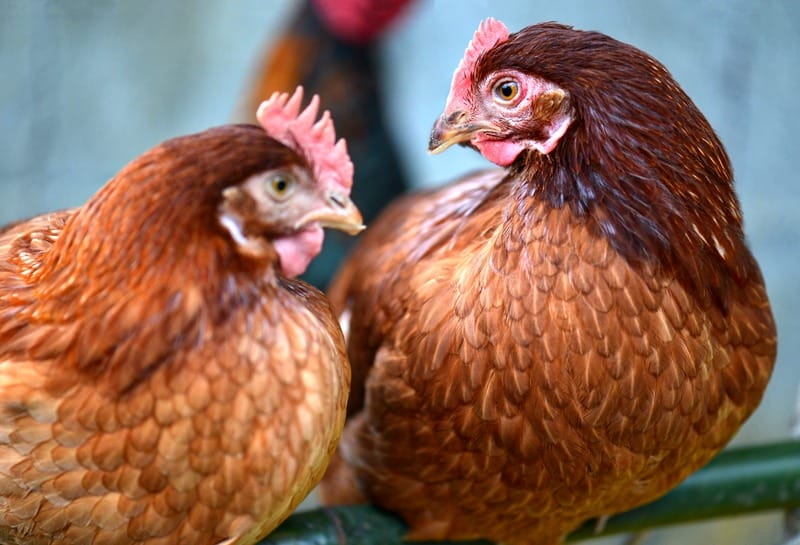
One thought on “The heat is on managing poultry farms in Nigeria’s tropical climate”